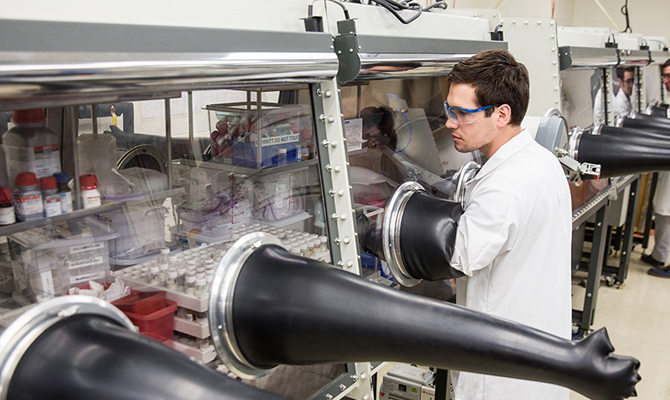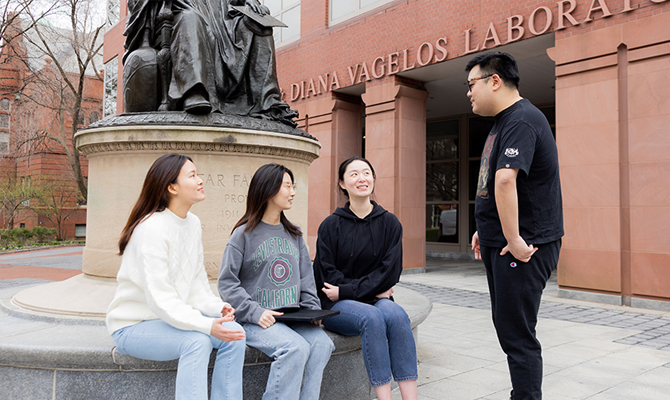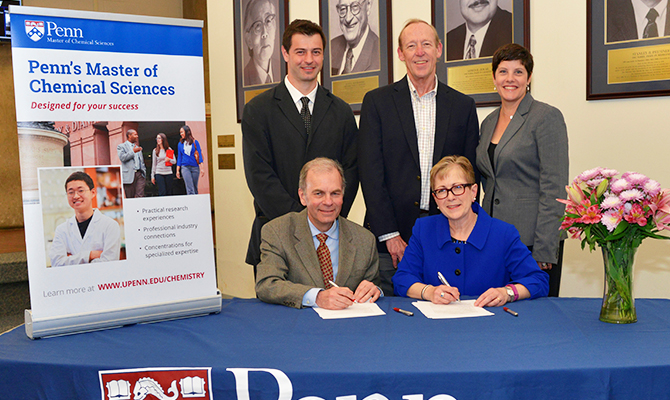Watch the 2021 MCS graduates present their capstone research posters.
If you’re having trouble watching this video, you can view it on YouTube.
Biological Chemistry Graduates

Brian Michael Gillespie, MCS ‘21
Bachelor of Arts in political science, University of Michigan
Juris Doctorate, Baylor University
Future plans: Continue in law
Capstone: Controlled drug delivery systems to treat subglottic senses
Russian Fayfar, MCS ‘21
Bachelor of Science in chemistry, Pennsylvania State University
Juris Doctorate, Michigan State University
Future plans: Continue in law
Capstone: Targeting Parkinson’s Disease: A nucleic acid-based approach
Materials Inorganic Chemistry Graduates

Diana Strano Arndt, MCS ’21
Bachelor of Science in chemistry, Bucknell University
Future plans: Pursue a career in industry
Capstone: Employing confidence intervals in electron microscopy digital image analysis to promote better analytical practices
Benchmark software used to analyze transmission electron microscopy (TEM) images of nanoparticle systems, such as ImageJ, are limited by their propensity to misidentify particles, requiring post-analysis manual removal, and their failure to divulge data manipulation bias introduced during processing. The data analytics field can help design better TEM image analysis processes by providing techniques such as removing unusable data before analysis and including feedback loops to improve analysis parameters in a non-linear procedure.

Yunhan Gao, MCS ‘21
Bachelor of Science in applied chemistry, Xi’an Jiatong-Liverpool University
Future plans: Pursue a career in industry in the field of materials chemistry
Capstone: Effect of the anchoring groups on the photostability of ruthenium(II) polypyridyl sensitizers
Carbon dioxide emissions are the primary driver of global climate change. Producing more energy from renewable resources is a good choice to reduce CO2 emissions. Using solar power to generate hydrogen in water splitting systems can be a sustainable approach to produce energy from renewable resources.
Organic Chemistry Graduates

Ta-Jung Chiu, MCS ‘21
Bachelor of Science in chemistry, National Sun Yat-sen University
Future plans: Penn Chemistry PhD program
Capstone: Synthesis of BNM-III-170 bis TFA salt and development of concise synthesis
Small molecule CD4 mimetics has the capability to inhibit the HIV-1 entry via binding to gp120 envelope glycoprotein on the cell surface. A previously-published 16-step and a new 9-step concise synthesis of BNM-III-170 bis TFA salt, a small molecule CD4 mimetic compound targeting toward the inhibition of the HIV-1 entry which has the potential to eliminate the infected cell and the HIV cell, is reported. Despite the 16-step scale-up synthesis of BNM-III-170 bis TFA salt can synthesize multigram of product in 9.64% overall yield, this time-consuming process urged the need for a new generation synthesis. Hence, the new 9-step concise synthesis of BNM-III-170 bis TFA salt featuring a Negishi cross-coupling, a dynamic-kinetic resolution, and late-stage Mitsunobu reaction has been developed.

Yi-Meng Lo, MCS ‘21
Bachelor of Science in chemistry, National Taiwan Normal University (NTNU)
Future plans: Ohio State PhD program in chemistry
Capstone: L-Lysine-B-Alanine dendrimers as soft nano materials for biorelevant application
Dendrimers are tree-like branched structures that are unimolecular in nature and are synthesized in a sequential manner. The first structure that can be interpreted as a dendrimer was first reported in the published paper by Fritz Vogtle and coworkers and the process was referred to as cascade synthesis.

Jeremy James McAndrew, MCS ‘21
Bachelor of Science in chemistry, King’s College
Future plans: Pursue a career in industry
Capstone: Novel catalytic use of titanium methylidene for olefin homologation
Steam cracking is the process by which the petrochemical industry dehydrogenates saturated hydrocarbons into their unsaturated analogs. These unsaturated analogs (e.g. olefins) are utilized to produce products having extensive uses such as in the production of adhesives, elastomers, and polymers all of which make modern life possible. Great disadvantages plague the steam cracking process however, as it is extremely energy intensive (requires extremely high temperatures, > 800 °C) and unselective due to the radical nature of dehydrogenation exacerbating the cost due to separation. This project explores the possibility of converting the stoichiometric homologation of already existing olefins with the transient species dicyclopentadienyltitaniummethylidene [Cp2TiCH2], into a catalytic process under mind conditions.

Pankti Shabd Mehta, MCS ‘21
Bachelor of Science in chemistry, Mithibai College, Mumbai University
Future plans: University of Delaware PhD program in chemistry
Capstone: Synthesis of biorelevant polyamide dendritic macromolecules
Dendrimers are repetitively branched tree-like molecules that represent the fourth major class of polymeric materials. Ever since their discovery, dendrimers have found applications in diverse fields of chemistry, medicine, and nanotechnology. This project was directed towards the synthesis of Gadolinium chelated lysine-based dendrons, for application as a potential contrast agent for MR imaging, and to synthesize a novel, flexible, efficient, charge neutral and physiologically stable dendrimer, that is expected to find an application in the biomedical field.
Physical Chemistry Graduates

Steven Ly, MCS ‘21
Bachelor of Science in pharmacological chemistry, University of California, San Diego
Future plans: Pursue a career in industry
Capstone: Characterization of charged bundlemers and encapsulation of positively charged species by ferritin
Protein-protein host guest systems have a broad range of applications including chemical sensing, separations, materials science, catalysis, and pharmaceutics. Ferritin with its self-assembling, high-biocompatibility, and negatively charged inner core is an attractive host system for positively charged species. It’s been shown to encapsulated positively charged species such as GFP (green fluorescent protein), carbonic anhydrase II, and gold nanoparticles. We now aim to understand the mechanisms behind encapsulation of positively charged proteins inside the core of ferritin by generating an ensemble of configurations using molecular dynamics.

Youngtae Song, MCS ‘21
Bachelor of Science in physical chemistry, Kalamazoo College
MCS Capstone Award winner
Future plans: Penn Chemistry PhD program
Capstone: Investigating the development of wrinkle-like morphologies in diblock copolymer thin films
Block copolymer class of polymeric materials that consist of two or more ‘blocks’ of chemically distinct polymer chains. Block copolymer self-assembly self-assemble with the same ‘blocks’ of polymers and microphase separate into structure when exposed to solvent vapor.






